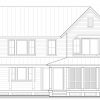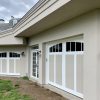There are various heat stress disorders that may affect us as the summer heat increases and the temperature and humidity rises on the job. During th esummer months we must all take precaustings to ensure our bodies don’t get over heated.
Heat Disorders: The risk of heat exhaustion increases in children younger than 4 and adults older than 65. The body’s ability to regulate its temperature isn’t fully developed in the young and may be inhibited by illness, medications or other factors in older adults. Both age groups tend to have difficulty remaining hydrated, which also increases risk.
However, regardless of your age, there are some factors that increase your likelihood of having a heat stress episode. Certain medications and drugs can affect your body’s ability to stay hydrated and respond appropriately to heat including thos that narrow your blood vessels: regulate your blood pressure; rid your body of sodium and water; allergy midcations; calming medications; etc. If you take medications, you shouild check with your doctor to see if they will affect you if exposed to high heat and / or humidity. Also, keep in mind that obesity or carrying excess body weight can affect your body’s ability to regulate its temperature and cause your body to retain more heat.
Heat Exhaustion: Heat exhaustiion is a condition whose symptoms may include heavy sweating and a rapid pulse, a result of your body overheating. It’s one of three heat-related syndromes, with heat craps being the mildest and heatroke being the most severe.
Warning signs of heat exhaustion include:
- Headaches, dizziness, lightheadedness or fainting
- Weakness and moist skin
- Mood changes such as irritability or confusion
- Upset stomach or vomiting
- Heavy sweating
- Your skin may feel hot and moist and appear flushed
Causes of heat exhaustion include exposure to high temperatures, particularly when combined with high humidity, and strenuous physical activity. Without prompt treatment, heat exhaustion can progress to heatstroke, a life-threatening condition. Fortunately, heat exhaustion is preventable.
In most cases, you can treat heat exhaustion yourself by doing the following:
- Rest in a cool place. Getting into an air-conditioned building is best, but at least, find a shady spot. Rest your back with your legs elevated higher than your heart level.
- Drink cool fluids. Stick to water or sports drinks. Don’t drink any beverages that have alcohol or caffeine, either of which can contribute to fluid loss.
- Apply cool water to your skin. Take a col shower or drench yourself with a water hose if possible.
- Loosen clothing. Remove any unnecessary clothing.











